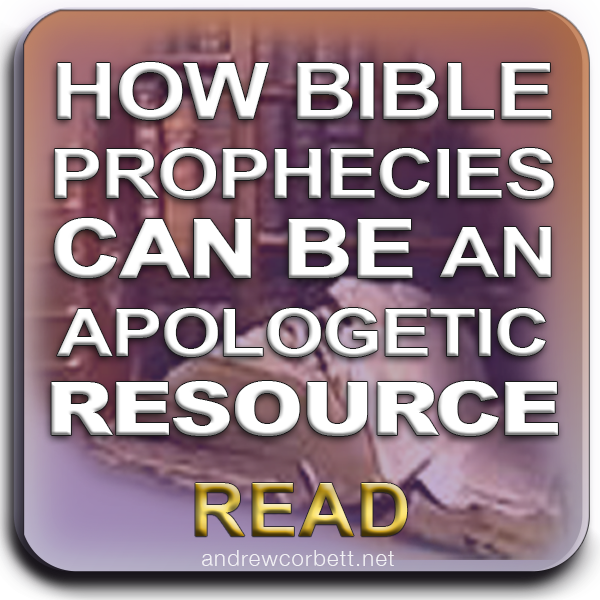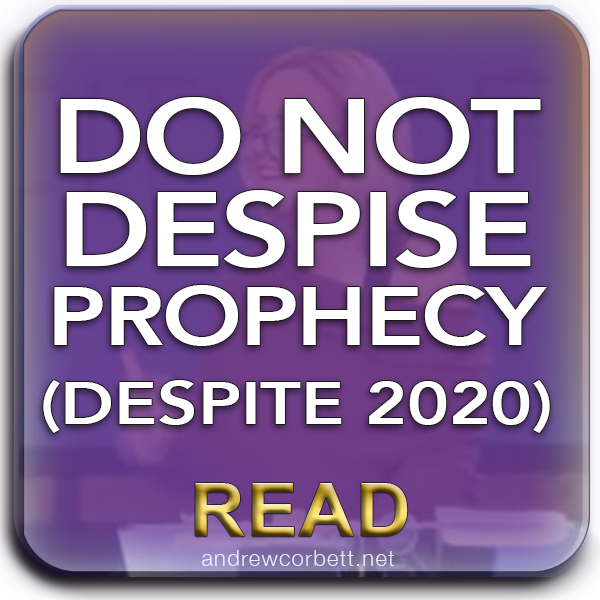
DIGGING DEEPER INTO JOHN’S GOSPEL
Digging Deeper into John’s Gospel, video commentary through the Gospel of Belief

Digging Deeper into John’s Gospel, video commentary through the Gospel of Belief
In Professor Stuart Piggin’s seminal work on the Evangelical history of Australia, The Fountain of Public Prosperity, he argues that it was the rise of ‘pre-millennialism’ eschatology that gave much impetus to the Evangelicals successful evangelism. Evangelical evangelists of the mid-1800’s were preaching that Christ’s return – and the end of the world – was imminent. But their pre-millennial gospel was also ‘pre-tribulational’ – which meant that the urgency to turn to Christ in repentance was even more urgent, otherwise Christ’s “secret return” (‘the rapture’) could leave the unrepentant in the midst of a hell-on-earth “Great Tribulation”. This new evangelistic message gained much traction and many converts. It would be a popular evangelistic message up until the latter part of the twentieth century. Pragmatically, it was a popular because it worked! But like many (unexamined) good ideas, it has had unintended negative consequences.

The Western Wall which exists today is not the same wall that existed in the time of Christ. Firstly, it was still under construction, and not completed till a few years later. After the Romans had damaged it, it began to be reconstructed under the Umayyad Caliphate in the seventh century, then what has survived to the present day was completed by the Byzantine Empire several centuries later. This is important to know because then we can recognised that the predictions given by Jesus in Matthew 24 were indeed fulfilled just as He said they would be — and, just at the time He said they would be.

What are the statistical odds that an ancient prophecy could just ‘get lucky’ and have its prophecy fulfilled? The odds dramatically increase when an ancient prophecy involves more details. Note the qualifications of Professor Peter Stoner. Then note his statistical analysis of how likely it would be for an Old Testament biblical prophecy with 16 or more specific details to randomly be fulfilled:

Do Christian preachers actually need to preach from the Bible? Apparently yes and apparently no. Apparently ‘yes’ in that it seems some preachers feel obliged to at least use a verse from the Scriptures to pre-empt their message which may not necessarily bear any relationship to that verse. And apparently ‘no’ because some preachers don’t even feel the need to use even a verse of Scripture, or make any reference to it! Whether you preach topically or expositorily you must undertake the process of exegesis.
Exegesis is the process of getting out (‘ex’) of the text what is truly there in the first place. The opposite to exegesis is eisegesis. This is the process of putting into the text something that wasn’t intended by the author. So let’s explore how to do eisegesis (although most people don’t actually need to be instructed on how to do this!).

I’m a huge fan of the Jason Bourne franchise. In the first instalment, Jason eventually becomes aware of a CIA conspiracy to assassinate uncooperative international political figures called Operation Treadstone. But unlike many of the internet conspiracy theories that have been flying around lately, Jason has good reasons to believe that Treadstone was more than just a theory, because he discovered that he was central to it, and interacted directly with its proponents. That is, Jason engaged with the ‘primary sources’ of an actual conspiracy which enabled him to verify it. This is also what I would like to encourage all those who too quickly (and too easily) embrace the various conspiracies that are going ‘viral’ on the internet. But it’s not necessarily all of the variations speculating about government conspiracies that most concerns me.

I believe in prophecy and I believe in prophets. But based on what I know from Scripture both are rarer than many would have us believe. I suspect though that there a lot of Christians who used to share my acceptance of the validity of prophecy and prophets — who no longer do due to the events of 2020. One of the many reasons I believe in prophecy and prophets is the teaching of Scripture. I will use one particular two-verse passage to bookend this week’s pastor’s desk to make my case.

Why is “Intelligent Design” (I.D.) so controversial? At an Australian National Press Club luncheon address (Wednesday August 10th 2005), the then Federal Minister for Education, Mr. Brendon Nelson, likened being asked a question about incorporating intelligent design into the national science curriculum as difficult a question as being asked about abortion!

Many Biblical devotionals do not start with exegeting a text. This is sometimes justified with the fanciful notion that a Biblical passage can legitimately have multiple interpretations. But it is generally acknowledged in the field of Hermeneutics that one of the guiding principles is that the Bible has one intended meaning (which is the goal of interpretation) and multiple applications (which is the goal of devotionalism). Of all the devotional commentators of the Bible, Matthew Henry is probably the most renowned. He wrote a devotional commentary on nearly every book of the Bible. What makes Matthew Henry’s comments so valuable is that he had a better than average exegetical understanding of the text he was sharing his devotional thoughts on. The other value of his commentary is that it reveals how the Puritans approached the Text in the light of Papal apostasies. This is particularly apparent with his comments about the Book of Revelation. For example, his comments on Revelation 17 (which describes the “Harlot of Babylon”) contains references to “Papal Rome” and “the Papacy”. Matthew Henry the Exegete knew better than this, but Matthew Henry the Puritan Presbyterian Pastor was committed to the established idea that the Bible prophetically warned of the looming evils of the Papacy…

Much of what is taught by Bible-prophecy teachers about the end-times” is grounded in Paul’s two epistles to the Thessalonians. It is claimed that in First Thessalonians, Paul introduced the notion of a rapture. And it is believed that from Second Thessalonians, he introduces believers to some revelations about the “Antichrist”. The Apostle certainly does share some divinely inspired insights into what was future to his original audience. But the modern reader may not understand how future it was to these Thessalonians – which may mean that it is not future to us.

I’m not really in hip hop music. And, based on my limited knowledge of hop hop music, it appears that most hip hoppers aren’t necessarily into theology. That makes us even. But hip hopper are the poets of today and therefore often give voice to the many issues that their generation are grappling with. One of the most popular hip hoppers today is the Canadian poet and singer, Dax (Daniel Nwosu Jr.), who has just released his latest song, Dear God. In theological terms, this song is an imprecatory-lament song…